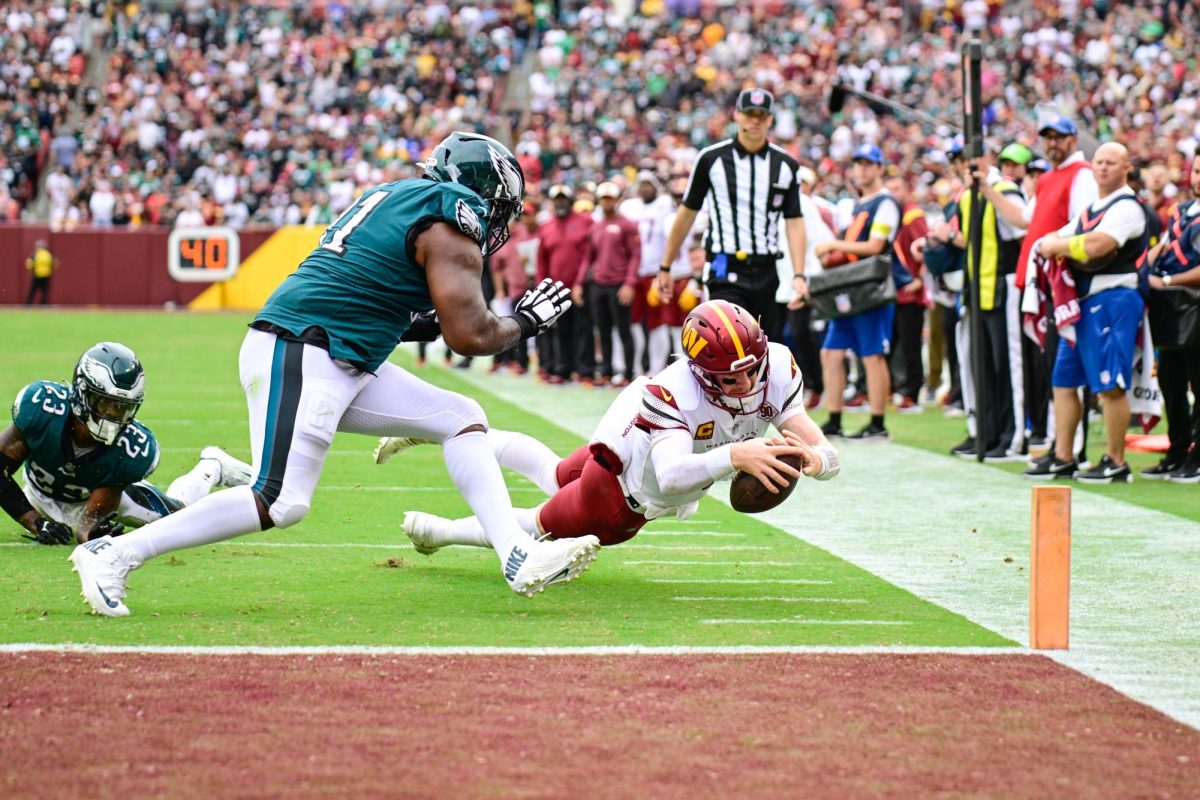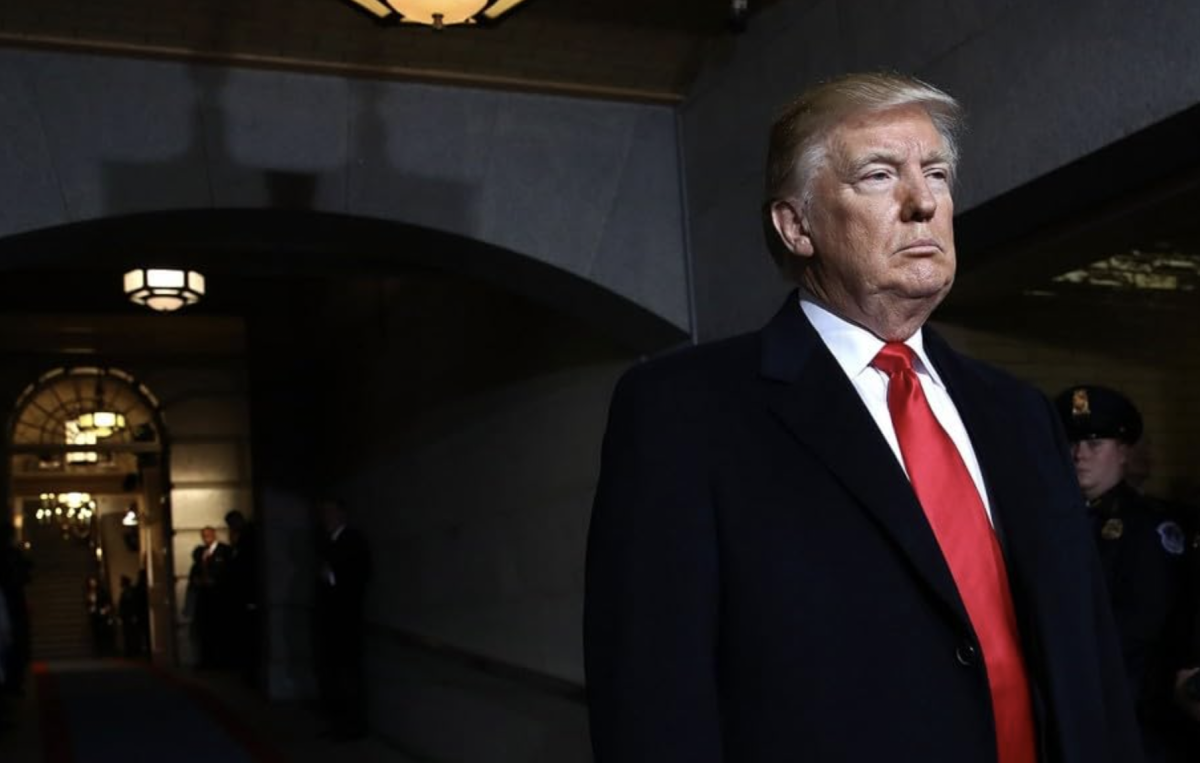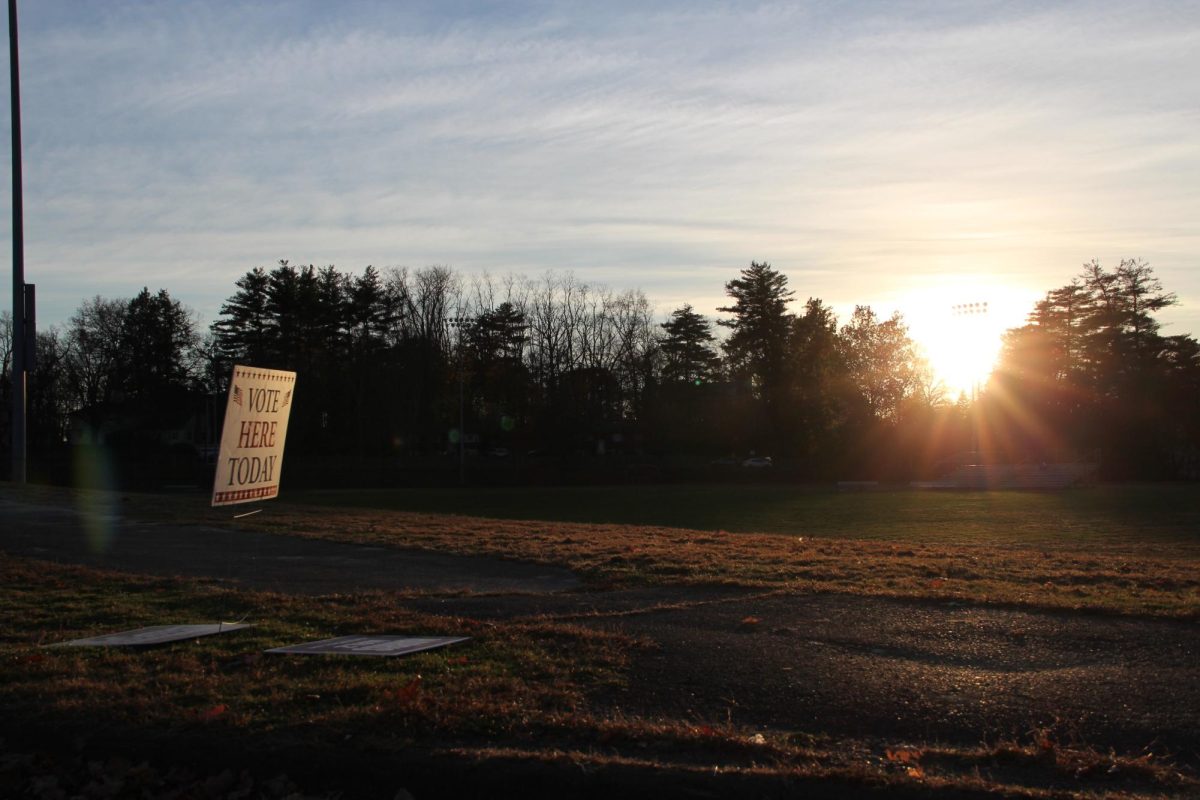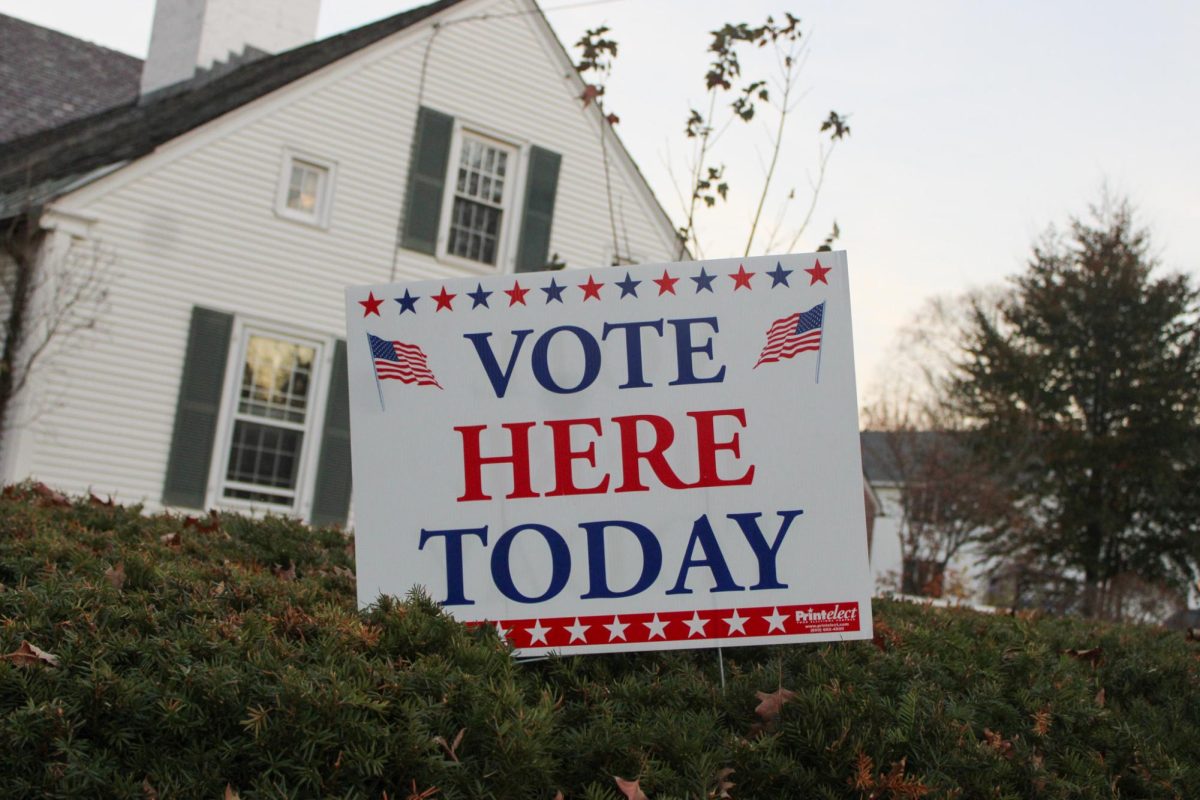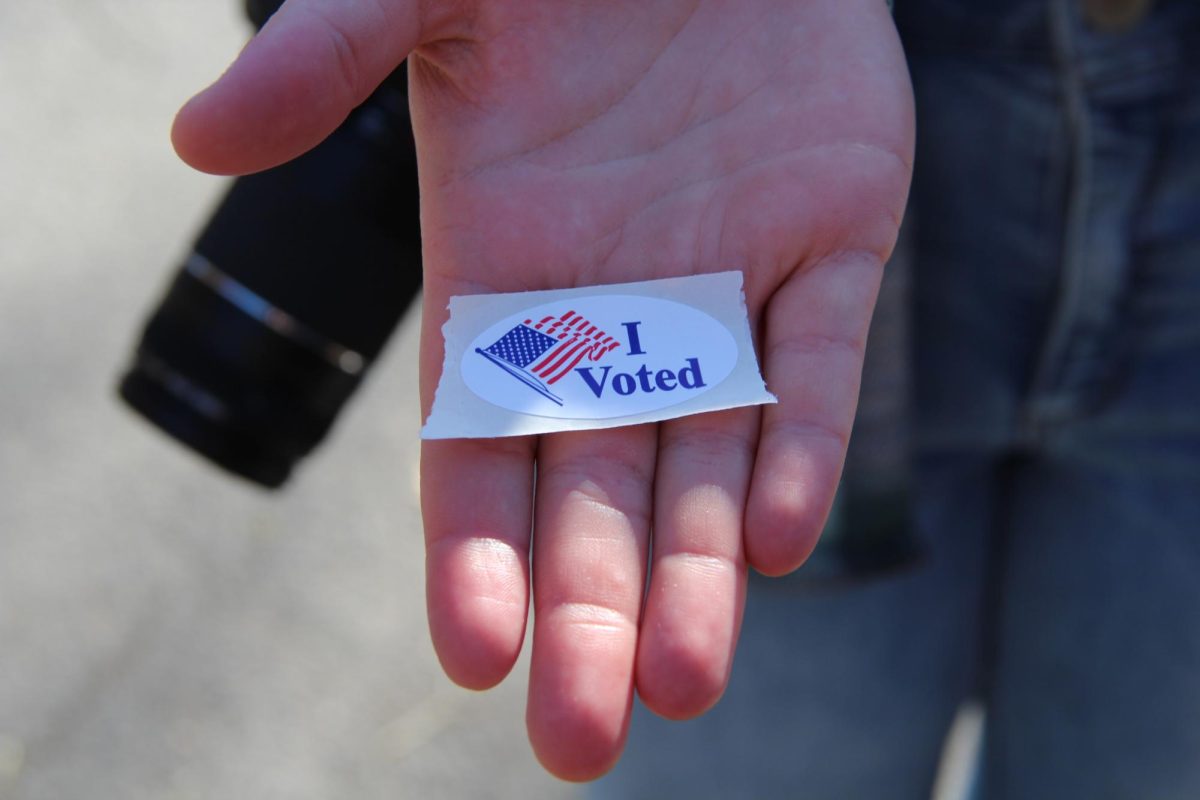When the Washington Commanders and Chicago Bears faced off in Landover, Maryland on Oct. 27, much of the attention was paid to the matchups on the field. Jayden Daniels and Caleb Williams, the number two and number one picks in this past year’s draft, headlined those storylines, but their Offensive Rookie of the Year campaigns shouldn’t have been the race fans paid the most attention to that night. Instead, they should be more concerned about how the result will impact the impending election between Kamala Harris and Donald Trump.
The Commanders Rule states that when Washington wins its last home game before the election, the party of the incumbent will retain the presidency. When the team loses that game, the opposition party will win the election.
With time expiring and Washington down by three on its own 35-yard line, the Commanders needed a Hail Mary to win the game. Daniels, with time expiring, scrambled for 13 seconds before uncorking a deep shot short of the goal line. A mob of Chicago and Washington players converged on the ball, tipping it up in the air. The Commanders’ Noah Brown stood alone in the endzone and caught the deflection with no time on the clock, giving Washington an 18-15 win over the Bears.
Daniels threw for 326 yards and ran for 52, while Williams finished the day 10 of 24 for 131 yards. Chicago took its late lead on a Roschon Johnson touchdown run with 25 seconds left in the game. The Commanders’ kicker Austin Seibert went four of five on the day, providing their only points before the game-winning touchdown. The Bears were held to 172 total yards of offense before the fourth quarter and were unable to get on the board until D’Andre Swift’s 56-yard touchdown run in the third quarter.
Because Washington won against Chicago, Harris will (presumably) win the election and the Democrats will keep the presidency. If the Bears had won, Trump and the Republican party would have been predicted to take over.
From 1940 to 1996, this rule held true for every election. Prior to the 2000 election, Steve Hirdt of the Elias Sports Bureau noticed this trend and convinced Don Ohlmeyer, producer of Monday Night Football, to create a graphic to share this information during the broadcast. Viewers took interest in Hirdt’s findings, and after Washington’s loss to the Tennessee Titans correctly corresponded with Republican George W. Bush’s victory over Democrat Al Gore, the rule became a fixture in election coverage.
In 2004, the Commanders lost to the Green Bay Packers. According to the Commander’s Rule, this would signify that Bush, the incumbent, would lose to Democrat John Kerry. Instead, Bush won re-election and seemingly ended Hirdt’s rule. This led to a revision, the Commander’s Rule 2.0, which stipulates that when the winner of the popular vote does not win the election, the impact of the Commander’s Rule gets flipped.
With this modification in mind, the 2004 result was also correctly predicted by Washington’s loss. Bush lost the popular vote in 2000, flipping the rule and forecasting an incumbent win with a Washington defeat.
Even with the introduction of Hirdt’s Commander’s Rule 2.0 in 2004, this version has not been accurate for every presidential election. Bush won the popular vote in 2004, so Democrat Barack Obama’s victory matched Washington’s loss to the Pittsburgh Steelers in 2008 according to the original Commanders’ Rule. In 2012, however, Washington lost to the Carolina Panthers, meaning Obama should have lost the election outright or lost the popular vote and won via the Electoral College. Obama won both, marking the first time no version of the Commander’s Rule held true. Hillary Clinton lost in 2016 despite winning the popular vote, conflicting with Washington’s win over the Eagles and creating consecutive instances of the rule being incorrect. The 2020 election ended this streak of inconsistencies, with the Commander’s victory over the Cowboys predicting a win for Joe Biden, which was accurate.
Biden won the popular vote in 2020, so the rule is back to its original iteration, with the Commanders’ win boding well for the Democrats. With the NFC East being one of the most competitive divisions in football this season, this game may end up having playoff implications come January, but its most important repercussions will likely be felt on Nov. 5.
James Rust can be reached at [email protected] and followed on X @James__Rust.

